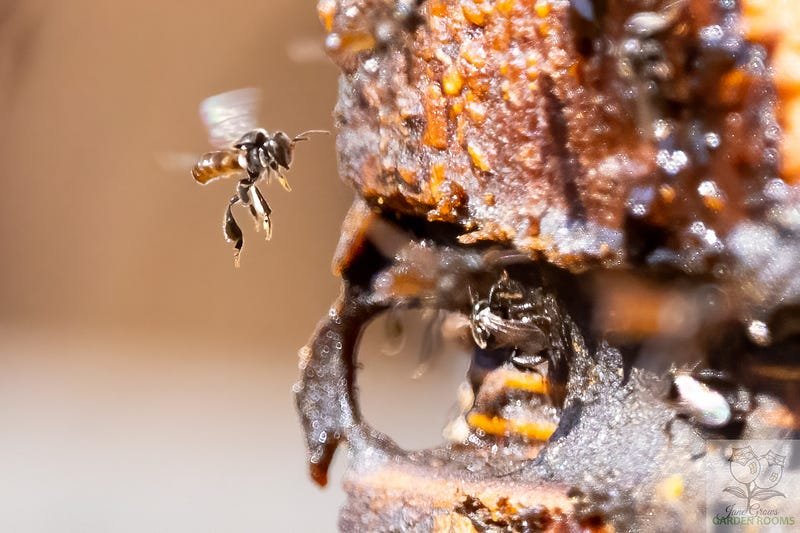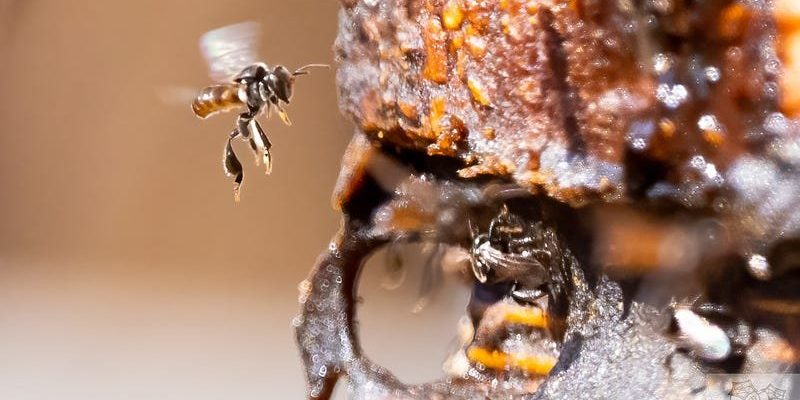
Stingless bees are more than just harmless; they play a crucial role in our ecosystem. They pollinate flowers, fruits, and even plants that other bees might overlook. Plus, they produce a unique honey that’s not only delicious but also packed with nutrients. If you’re thinking about taking a step into the world of beekeeping, stingless bees could be the perfect starting point. Let me explain what you need to know before you get started on this buzzing adventure!
What Are Stingless Bees?
Stingless bees, primarily found in tropical and subtropical regions, belong to the Meliponini tribe. Unlike their more familiar cousins, they don’t have a venomous sting. Instead, they’ve evolved to be gentle pollinators, focusing on living in harmony with their environment. You might come across several species of stingless bees, each with its unique qualities and habitats.
To give you a clearer picture, think of stingless bees as the friendly neighbors of the beekeeping world. They’re smaller than honeybees, usually about the size of a housefly, and they come in various colors. Their hives are often built in hollow trees or underground, producing a smoother, more aromatic honey compared to traditional honeybees. This honey is not just a sweet treat; it’s also rich in antioxidants and can even have medicinal properties.
If you’re wondering why anyone would want to keep stingless bees, the answer is simple: they can be a fantastic addition to your garden or farm. They pollinate crops effectively and can help increase your yield without the usual worries that come with keeping bees that sting.
Benefits of Keeping Stingless Bees
You might be asking yourself, “Why should I consider keeping stingless bees?” Well, there are several reasons, and they all add up to a pretty compelling case.
- Safe for Everyone: First off, since stingless bees don’t sting, they’re great for families with kids or anyone who’s cautious around flying insects. You can enjoy the benefits of beekeeping without the fear of getting stung.
- Pollination Power: These bees are excellent pollinators. They can help your garden flourish by ensuring that your plants get the attention they need to thrive. More pollination can lead to bigger and better fruits and vegetables!
- Unique Honey: The honey produced by stingless bees is different—it has a more complex flavor profile, often with herbal or citrus notes. It’s also believed to have health benefits, making it a great addition to your pantry.
- Environmental Impact: By keeping these bees, you’re contributing positively to the local ecosystem. They help maintain biodiversity while also supporting food sources for many animals and insects.
With all these benefits, it’s clear that keeping stingless bees can be a rewarding and enriching experience.
Getting Started with Stingless Bees
So, how do you start your journey into stingless beekeeping? First, you’ll need to decide where to house your bees. Unlike honeybees that usually go for wooden hives, stingless bees thrive in specific types of hives that mimic their natural habitats. You can easily find or build a stingless bee hive using materials like wood or even plastic.
Choosing the right species is also crucial. Some of the most popular species for domestic beekeeping include the Melipona and Trigona species. These bees adapt well to domestication and are known for their honey production. As you set up your hive, ensure it’s in a quiet area with plenty of flowers nearby for food.
Don’t forget that hive management is essential for keeping stingless bees happy and healthy. Regularly check the hive for signs of disease or pest infestations. It’s also a good idea to understand their life cycle, as knowing when they’re most active can help you manage them more effectively.
Challenges in Keeping Stingless Bees
While keeping stingless bees has many perks, it’s not without its challenges. Here are a few hurdles you might face:
- Temperature Sensitivity: Stingless bees are sensitive to temperature changes. They prefer warm, humid environments. If you live in a colder climate, you’ll need to take extra precautions to keep them warm.
- Limited Knowledge: In many regions, resources on stingless beekeeping can be limited. You’ll need to actively seek information, perhaps even joining local beekeeping clubs or online forums to connect with other enthusiasts.
- Space Requirements: While they don’t take up too much room, you still need an appropriate setup for your hive. Make sure you have a designated area in your garden or backyard where they can thrive.
Understanding these challenges ahead of time means you’ll be better prepared to handle them.
Why Domesticate Stingless Bees?
You might wonder why anyone would bother to domesticate these bees. Aside from enjoying the honey, there’s a strong case for their role in sustainable agriculture. Domestication can lead to more stable bee populations, which helps support local ecosystems and ensure better crop yields.
Additionally, by keeping stingless bees, you’re playing an active part in conserving these important pollinators. Many species of stingless bees are at risk due to habitat loss and climate change. By choosing to domesticate them, you contribute to their survival and create awareness about their importance.
Plus, let’s not forget the joy of watching them work! They are fascinating creatures, and observing their interactions and behaviors can be utterly captivating.
Considering all this, the question of whether you can keep stingless bees truly boils down to your interests and commitment level. If you’re looking for a unique, enjoyable, and low-risk way to dip your toes into beekeeping, stingless bees could be the perfect fit. They offer benefits that extend beyond just honey production, making them a worthy addition to your garden or farm.
So grab your gear, do your research, and prepare for a rewarding experience that connects you to nature. With the right approach and a little patience, you’ll find that keeping stingless bees isn’t just about the honey; it’s about cultivating a vibrant and buzzing corner of the world.

